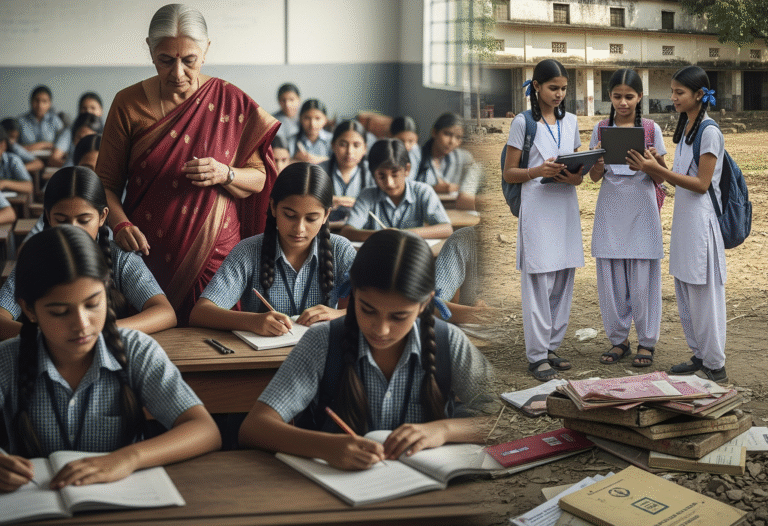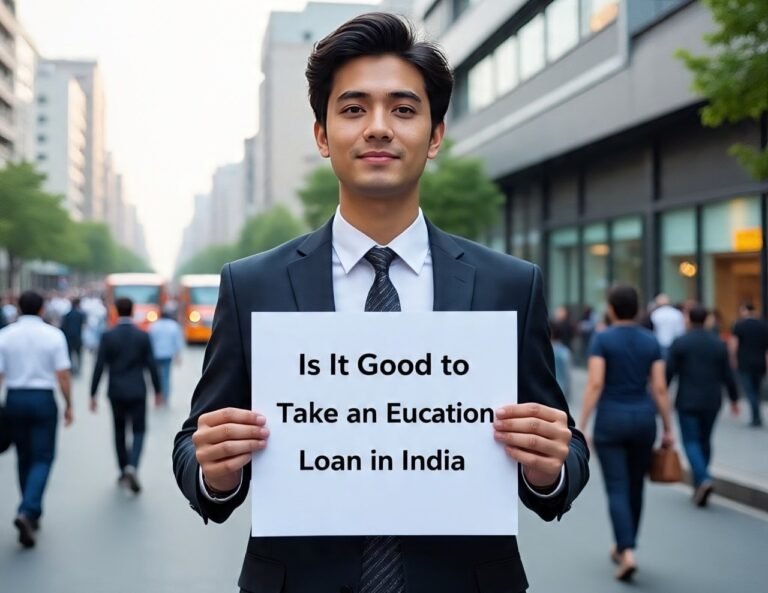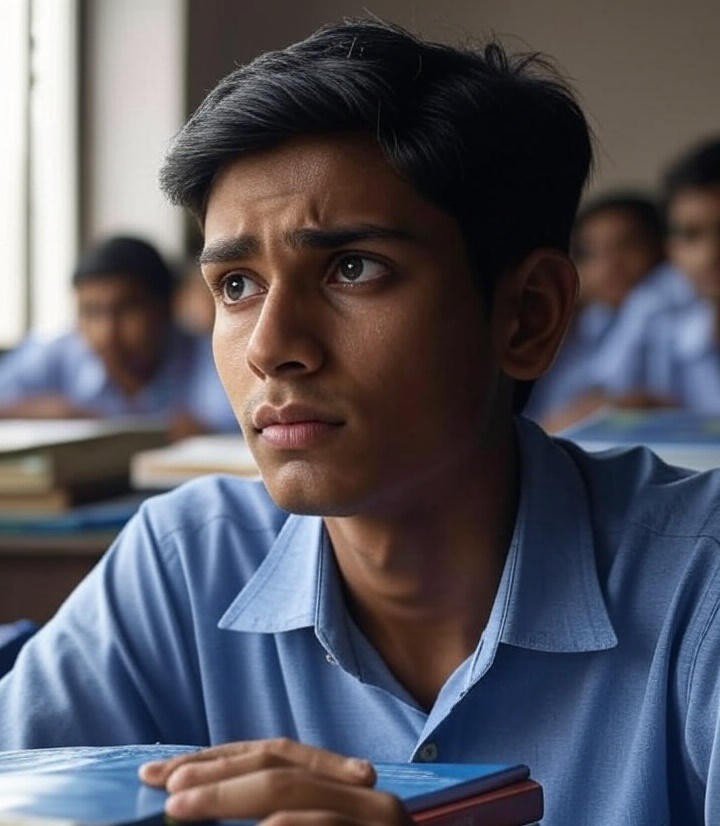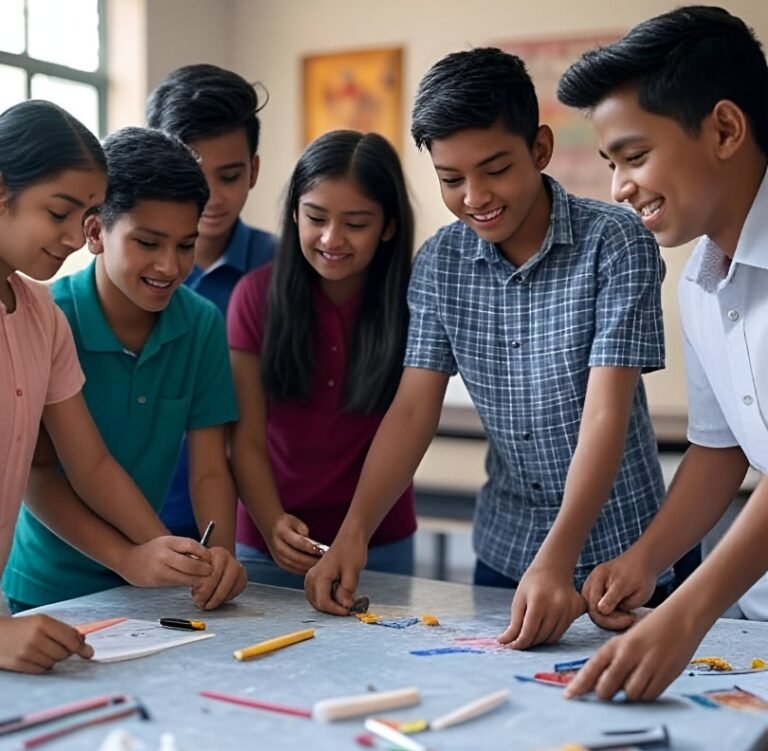18 Powerful Reasons Why Universal Education Can Skyrocket India’s Future and Outshine China and the USA

India is standing at a crossroad. Not just economically. But existentially. We’ve got something no one else does anymore. We need universal education for the people those are young, ambitious and undirected.
If we don’t educate them—we will lose them.
And with them, we lose everything.
18 Powerful Reasons Why Universal Education is necessary:
1. The Population Surge Is Not the Problem—Ignorance Is
India has more than 600 million people below 25. That number sounds like an opportunity, and it is, but only if it’s handled with vision and urgency.
Without education, this isn’t a demographic dividend—it’s a disaster in waiting.
A crisis that grows in the silence of our classrooms and the broken chalkboards of forgotten villages.
And the thing is, we already know this.
We’ve known it for years.
We just.
Don’t act.
2. Schools Exist, But Real Learning Doesn’t
Enrollment is high. Everyone claps.
But what happens after kids enter the building?
Many children in government schools still sit on dusty floors, sharing one textbook between five, taught by someone who hasn’t been trained in ten years and might not even show up next week.
Some teachers handle five subjects across seven grades.
That’s not teaching.
That’s surviving.
And survival isn’t the goal.
Transformation is.
3. China Builds Systems. America Builds Ideas. India Builds… Hope?
China focused on uniformity.
It produced obedient engineers and global factories.
America focused on creativity.
It produced Apple, Tesla, and Google.
India?
We’ve produced genius—in spite of the system.
Not because of it.
And that’s the tragedy.
If we actually gave every child the tools to think—not just memorize—we could leap ahead in a single generation.
But right now, we’re still patching up roofs on classrooms.
Literally.
4. Not Just About Jobs, It’s About Minds
People always say, “Educate them so they can earn.”
True.
But what about teaching them to think critically, challenge hate, decode fake news, ask real questions, build better societies?
Education isn’t just about income.
It’s about insight.
And integrity.
And if you don’t teach that—you get chaos.
Which we’re already starting to see.
5. Language Is Power—and a Barrier
We push English on kids from tribal and rural areas.
They can’t read it.
They don’t speak it at home.
But we insist.
So they shut down.
They memorize.
They forget.
They fail.
What if we just let them learn in the language of their heart?
What if understanding came first, before branding?
China doesn’t use English for schoolkids.
Germany doesn’t.
France doesn’t.
They thrive.
India?
Still colonizing itself in its classrooms.
6. The Girl Child Gets Left Behind—Still.
We talk about beti bachao, beti padhao.
But let’s be honest—most girls still drop out by age 14.
Why?
Because schools are too far.
Because there’s no toilet.
Because they bleed—and are shamed for it.
Because boys stare.
Because uncles marry them off.
You want to double India’s GDP?
Keep girls in school for 12 years.
It’s that simple.
No speech needed.
Just sanitation. Safety. Support.
7. Digital Dreams, Dusty Realities
EdTech is booming in cities.
But in villages?
One smartphone per family.
No Wi-Fi.
No table to study on.
No mother who can help with homework because she never finished Class 3.
Digital cannot replace humans.
Especially not teachers.
Especially not yet.
We can’t app our way out of illiteracy.
8. The Teachers Are Drowning Too
We blame teachers a lot.
But have you seen their lives?
Paid ₹12,000 a month in some states.
Expected to teach, take attendance, supervise midday meals, fill out ten registers, conduct elections, do census, and attend flag hoisting.
Meanwhile—they haven’t had training in years.
They don’t get respect.
They’re burned out.
And yet some still show up.
Every day.
That’s not duty.
That’s devotion.
9. Urban Kids Learn to Code. Rural Kids Learn to Copy.
In cities, 8-year-olds build websites.
In villages, 8-year-olds are memorizing answers written on blackboards.
Not learning. Just… copying.
And when exams come, they fail.
Because they never really understood anything in the first place.
We don’t need more syllabi.
We need to slow down and teach.
10. Patriotism Isn’t a Flag—It’s a School
We scream about borders.
Make hashtags trend.
Ban foreign apps.
Celebrate tanks and missiles.
But we ignore the 6-year-old girl in Uttarakhand
who walks 4 km every day to a school with no roof, no desk, no teacher.
If we really love India—then schools should be our temples.
Build them first.
Then everything else.
11. Policy Looks Pretty on Paper—but It Dies in Practice
The NEP (National Education Policy) is beautiful.
So many plans.
So many hopes.
But on the ground?
The same broken toilets.
The same teacher crunch.
The same exam obsession.
Policies don’t teach children.
People do.
12. Private Schools Are Not the Saviors We Think
We think private schools are better.
And yes—some are.
But many are profit machines.
Charging ₹2000/month, paying teachers ₹5000/month, and teaching from outdated books with zero oversight.
Poor families send kids to these schools just to say “English medium”—but the education?
Often worse than government schools.
We need to fix the system.
Not run from it.
13. Stop Worshipping Exams
Board exams.
Unit tests.
Mock tests.
Crash courses.
Marksheets.
This isn’t education—it’s a treadmill of terror.
A child who can imagine, write, draw, ask questions—gets crushed by rote learning.
We’re killing thinkers.
And creating parrots.
And then wondering why innovation is missing.
14. Real Education Builds Real Nations
Want less crime?
Educate.
Want better health?
Educate.
Want stronger families, lower birth rates, more startups, less caste violence, cleaner politics, and fewer WhatsApp forwards?
One answer.
Education.
Everything else is noise.
15. We’re Not Just Behind—We’re Bleeding Time
Every year we delay, another generation loses its chance.
You can rebuild an economy.
You can’t rebuild a childhood.
Those 8-year-olds in 2025?
They’re your citizens in 2040.
Your voters.
Your workforce.
Your soldiers.
Your scientists.
Your future.
And right now—they’re sitting on broken benches
With broken pencils
And broken hope.
16. We Don’t Need Magic. We Need Will.
This isn’t rocket science.
(We already did the rocket part.)
We just need:
Trained teachers.
Safe schools.
Relevant content.
Local language instruction.
Dignity for students.
Accountability for systems.
But above all?
The political will to make it happen.
And to make it happen now.
Not in 2047.
Not someday.
Now.
17. One Book Can Change Everything
A teacher hands a book to a girl.
She reads about galaxies.
She thinks beyond her field.
She questions everything.
She builds something new.
She gets out.
She brings others out.
That’s not a fairytale.
That’s India’s secret weapon.
18. This Is How We Beat China. And America.
Not by copying China’s control.
Not by mimicking Silicon Valley.
But by doing what neither of them can—
Educating 1.4 billion people
Across 22 languages
Over 700 districts
With no electricity in some, no water in others
But with grit
And soul
And fire.
That’s India.
That’s what we’re capable of.
Final Word
One school can change a village. One policy can lift a generation. One teacher can spark a revolution. It’s all possible. If we start treating education not as a budget line or a ministry But as the spine of India’s future.






